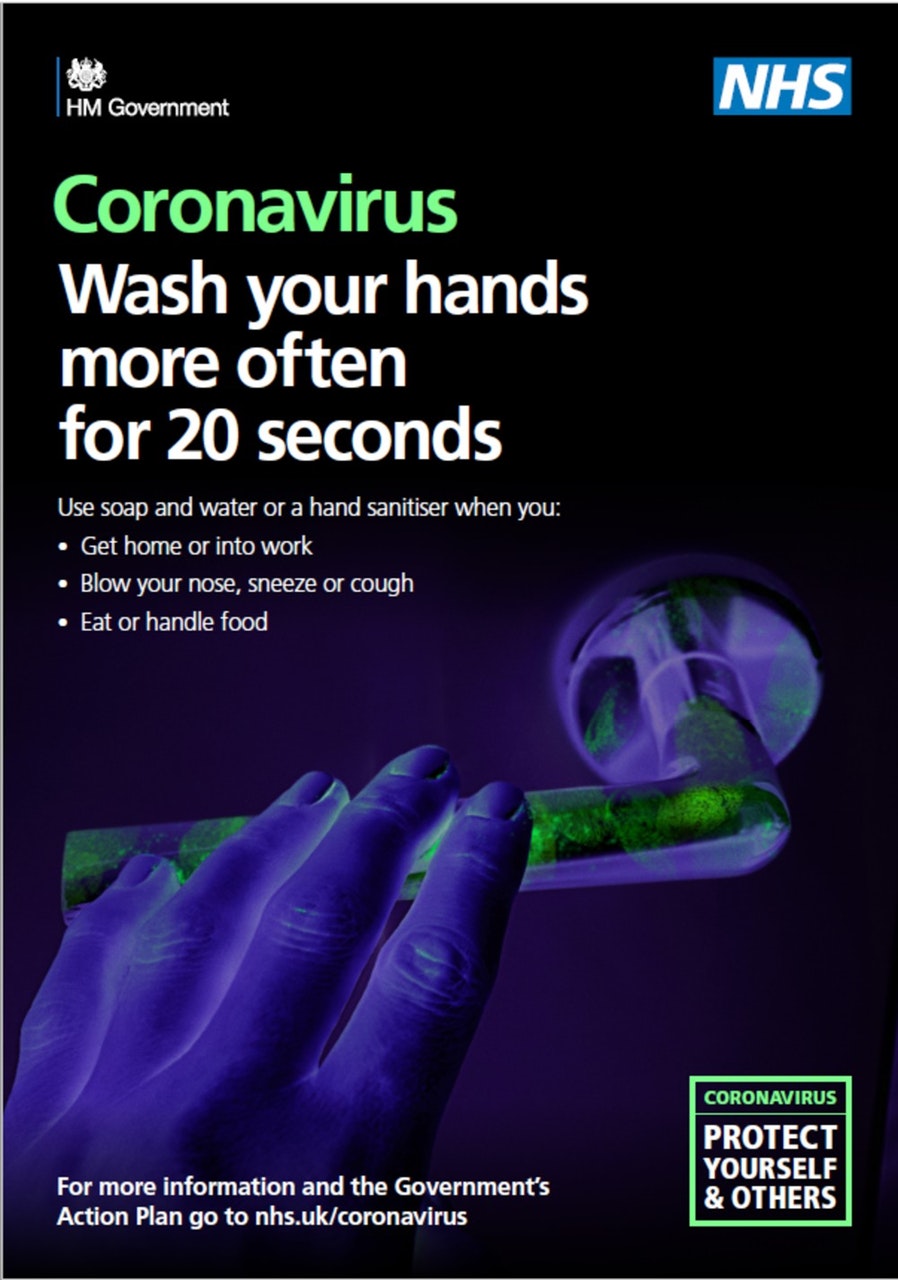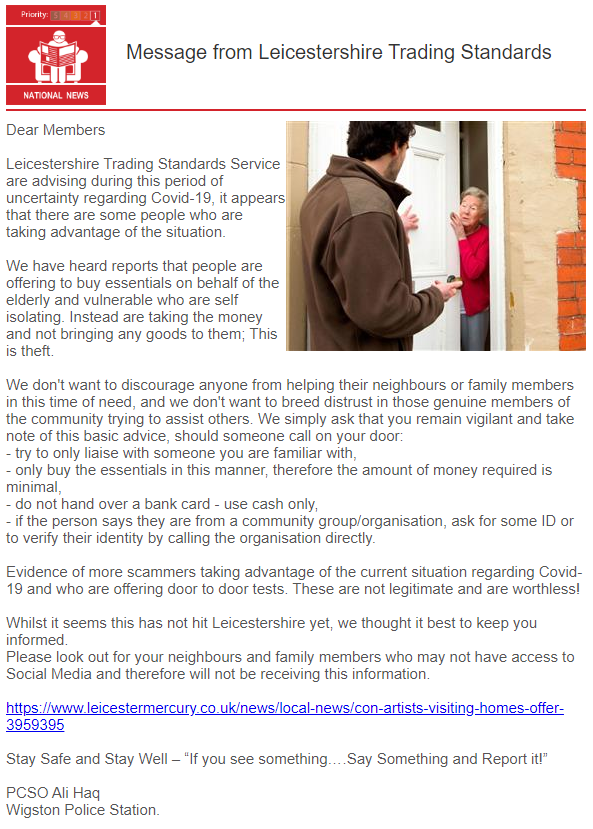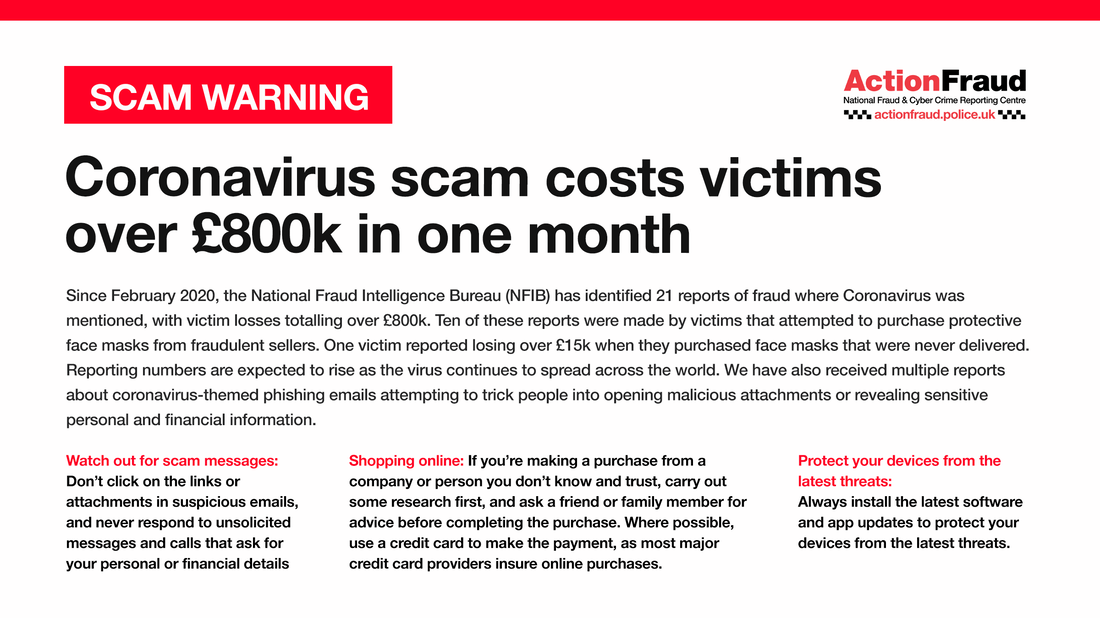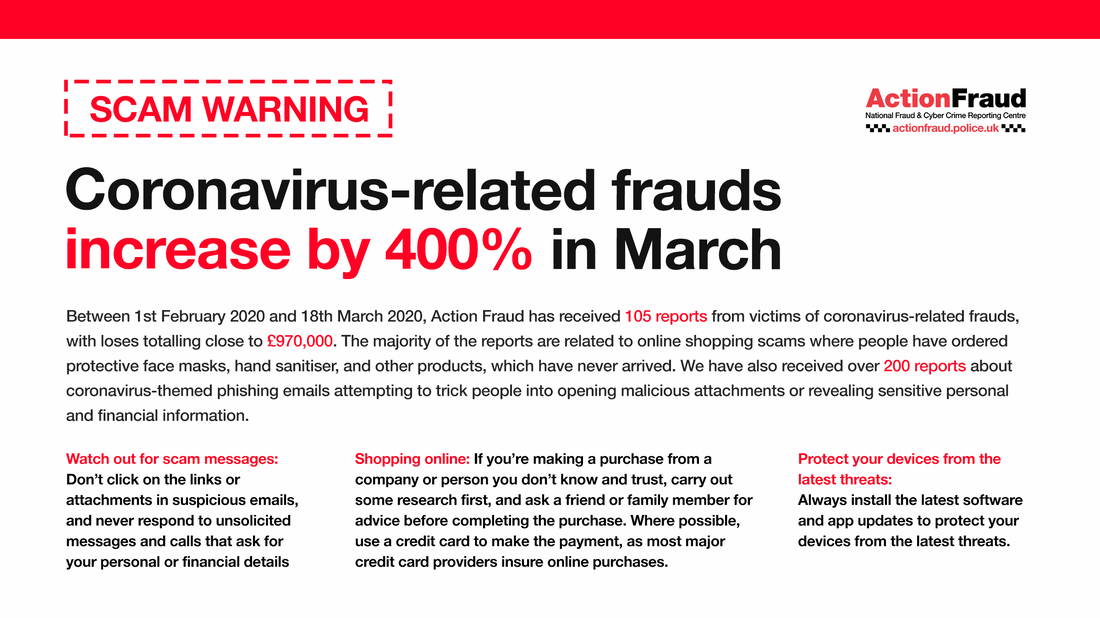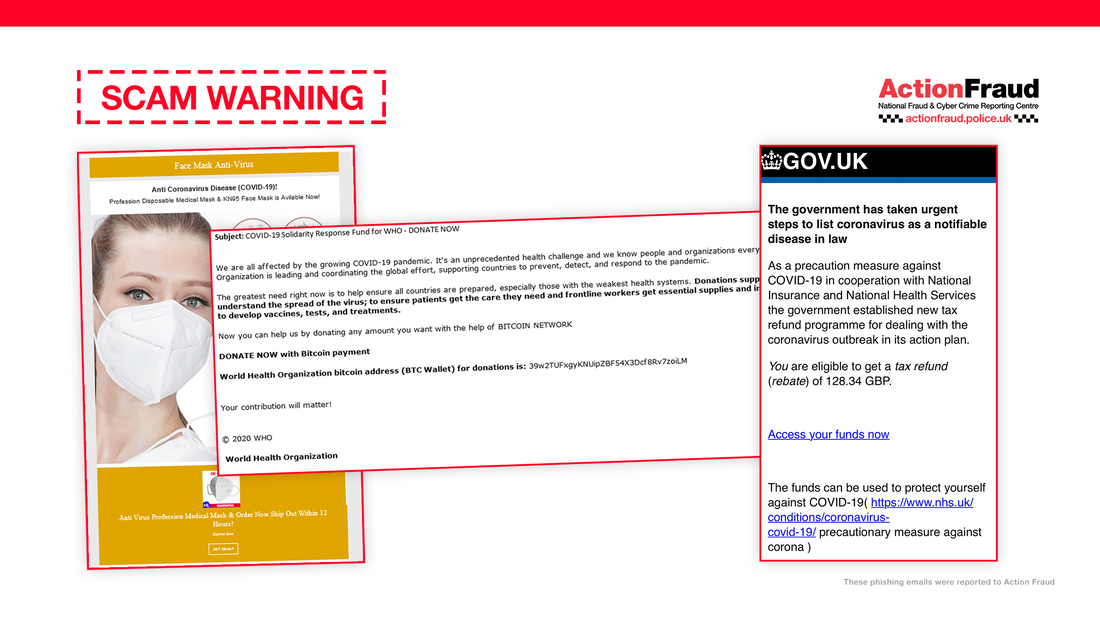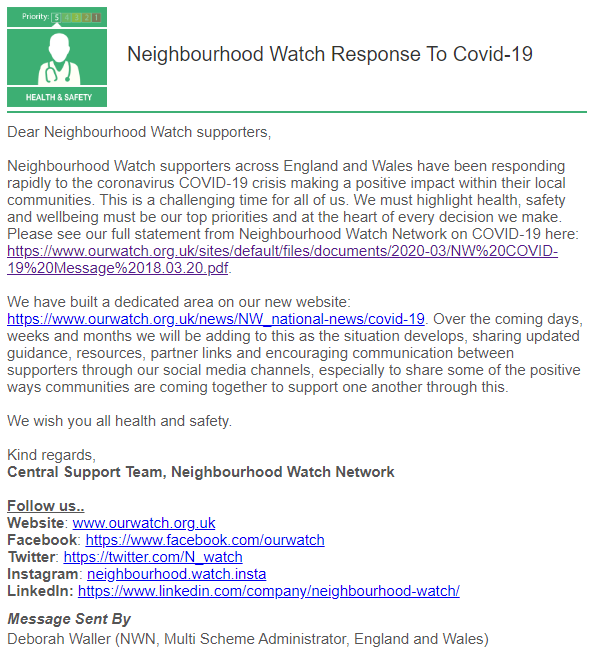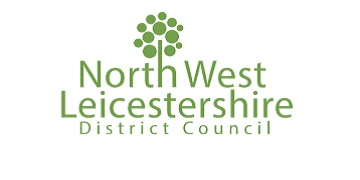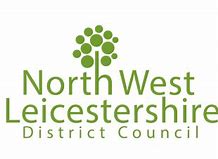Coronavirus
|
|
10 ways you can protect yourself, your loved ones and your community:
|
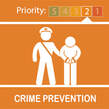
We Need Your Help To Protect Young People Being Targeted By Fraudsters
With schools closing, it is likely that younger people will be spending more time online, and therefore may be more likely to come across and ‘advert’ which might grab their attention. Fraudsters are targeting students to open or allow their bank accounts to be used for criminal activity. The Fraudsters may ask a student to receive some money into their bank account and transfer it to another account. It is important to know that this money will very likely be from another victim of a fraud. The Fraudsters may offer a “job” for a student to exchange money for foreign currency, withdraw it at cash machines and pass this over to somebody else or send it onto another party by a bank transfer. These offers of “jobs” or use of a bank account are most commonly seen on social media such as Instagram and Snapchat. Once a student has become a money mule, they may be scared or worried about their actions and find it hard to stop. They may not actually receive payment they were promised and may get further and further involved. They may receive threats of violence or the amounts or activity may escalate. Students who have become money mules and involved in Money Laundering may then suffer the following consequences: • Bank Account will be closed • Criminal record which may effect job prospects • Unable to open other bank accounts • Unable to get a mobile phone contract due to bad credit • Unable to get loans or mortgages • Unable to get store cards like New Look • Unable to get travel Visas to countries such as USA due to criminal records • Imprisonment up to 14 years for Money Laundering Offences Allowing your bank account to be used for moving criminal money impacts on the community in general as this money may be coming from offences of Fraud, Drug supply, Firearms dealing, People smuggling, Terrorism, Human trafficking and may be going to fund the same activity. Oftentimes, people are not aware that what they are doing is in fact money laundering and that they are becoming a ‘money mule’. It is therefore vital that we try to get the message out to as many students as we can to warn them that this is the case. We are asking people to remain vigilant. Please would you pledge to #Tell2 other people who may not have access our community alerts and advise them of this – please don’t assume everyone knows. Help us to protect others. |
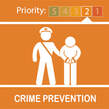
Coronavirus Related Fraud Reports Increase By 400 Per Cent In March
Recently the National Fraud Intelligence Bureau (NFIB) reported a new trend in fraud related to Coronavirus, or COVID-19. Updated figures show there have been 105 reports to Action Fraud since 1 February 2020, with total losses reaching nearly £970,000. The first report relating to Coronavirus, or COVID-19, was received on 9 February. There were 20 more reports that month. Since then, there have been 46 reports between the 1 March and 13 March, and 38 reports in just four days (14 March – 18 March). What scams are we seeing? The majority of reports are related to online shopping scams where people have ordered protective face masks, hand sanitiser, and other products, which have never arrived. Other frauds being reported include ticket fraud, romance fraud, charity fraud and lender loan fraud. Phishing emails We have also received over 200 reports of coronavirus-themed phishing emails. These attempt to trick people into opening malicious attachments which could lead to fraudsters stealing people’s personal information, email logins and passwords, and banking details. Some of the tactics being used in phishing emails include: • Fraudsters purporting to be from a research group that mimic the Centre for Disease Control and Prevention (CDC) and World Health Organisation (WHO). They claim to provide the victim with a list of active infections in their area but to access this information the victim needs to either: click on a link which redirects them to a credential-stealing page; or make a donation of support in the form of a payment into a Bitcoin account. • Fraudsters providing articles about the virus outbreak with a link to a fake company website where victims are encouraged to click to subscribe to a daily newsletter for further updates. • Fraudsters sending investment scheme and trading advice encouraging people to take advantage of the coronavirus downturn. • Fraudsters purporting to be from HMRC offering a tax refund and directing victims to a fake website to harvest their personal and financial details. The emails often display the HMRC logo making it look reasonably genuine and convincing. Superintendent Sanjay Andersen, Head of the National Fraud Intelligence Bureau, said: “Fraudsters will use any opportunity they can to take money from innocent people. This includes exploiting tragedies and global emergencies. “The majority of scams we are seeing relate to the online sale of protective items, and items that are in short supply across the country, due to the COVID-19 outbreak. We’re advising people not to panic and to think about the purchase they are making. When you’re online shopping it’s important to do your research and look at reviews of the site you are buying from.” Graeme Biggar, Director General of the National Economic Crime Centre, said: “We have already seen fraudsters using the COVID-19 pandemic to scam people looking to buy medical supplies online, sending emails offering fake medical support and targeting people who may be vulnerable or increasingly isolated at home. “These frauds try to lure you in with offers that look too good to be true, such as high return investments and ‘healthcare opportunities’, or appeals for you to support those who are ill or bogus charities. “The advice is simple, think very carefully before you hand over your money, and don’t give out your personal details unless you are sure who you are dealing with. “We are working together across law enforcement, government and the private sector to combat this criminal activity and protect the public. If you think you have been a victim please report to Action Fraud.” Protect yourself 1) Watch out for scam messages Don’t click on the links or attachments in suspicious emails, and never respond to unsolicited messages and calls that ask for your personal or financial details. 2) Shopping online: If you’re making a purchase from a company or person you don’t know and trust, carry out some research first, and ask a friend or family member for advice before completing the purchase. If you decide to go ahead with the purchase, use a credit card if you have one, as most major credit card providers insure online purchases. For more information on how to shop online safely, please visit: https://www.actionfraud.police.uk/shoponlinesafely 3) Protect your devices from the latest threats: Always install the latest software and app updates to protect your devices from the latest threats. For information on how to update your devices, please visit: https://www.ncsc.gov.uk/guidance/securing-your-devices For the latest health information and advice about COVID-19 please visit the NHS website. |
Community support
We’re looking at ways we can support the vulnerable, elderly and isolated in our communities given the Government’s advice around social distancing.
We are currently looking to gather information from community groups and volunteer groups to understand ideas you might have or actions you might already be taking to support the isolated or vulnerable.
We also would like to know from you whether you’re intending to take any action to support the community or know of any groups locally that are? Please email community.focus@nwleicestershire.gov.uk so we can collate this and then look at how we can support you.
Events
Given the Government’s advice on social distancing, we feel it is sensible for us to put in place plans to postpone our upcoming events.
We’re focusing on events taking place in April, May and June (we do not have any district council events in July) and wherever possible we’re looking to postpone rather than cancel. It is our hope and intention to reschedule our VE Day tea party later in the year, we are currently discussing this option with partners and suppliers and our proposed date is Saturday 22 August.
We anticipate that this will be a combined weekend of celebration to include Music and Picnic in the Park. When we’re in a position to announce postponements, we will do so on www.nwleics.gov.uk/coronavirus
Grants
Many of you will have applied for a VE Day grant ahead of events due to take place in May. If you are postponing your event for later this year considering we will still be able to support you with a grant for your postponed event. If you want to look at something new we may require a new form to be completed. If you choose to cancel your event altogether, we will withdraw your application and require the grant fund back.
Keep us in the loop by emailing community.focus@nwleicestershire.gov.uk.
We’re looking at ways we can support the vulnerable, elderly and isolated in our communities given the Government’s advice around social distancing.
We are currently looking to gather information from community groups and volunteer groups to understand ideas you might have or actions you might already be taking to support the isolated or vulnerable.
We also would like to know from you whether you’re intending to take any action to support the community or know of any groups locally that are? Please email community.focus@nwleicestershire.gov.uk so we can collate this and then look at how we can support you.
Events
Given the Government’s advice on social distancing, we feel it is sensible for us to put in place plans to postpone our upcoming events.
We’re focusing on events taking place in April, May and June (we do not have any district council events in July) and wherever possible we’re looking to postpone rather than cancel. It is our hope and intention to reschedule our VE Day tea party later in the year, we are currently discussing this option with partners and suppliers and our proposed date is Saturday 22 August.
We anticipate that this will be a combined weekend of celebration to include Music and Picnic in the Park. When we’re in a position to announce postponements, we will do so on www.nwleics.gov.uk/coronavirus
Grants
Many of you will have applied for a VE Day grant ahead of events due to take place in May. If you are postponing your event for later this year considering we will still be able to support you with a grant for your postponed event. If you want to look at something new we may require a new form to be completed. If you choose to cancel your event altogether, we will withdraw your application and require the grant fund back.
Keep us in the loop by emailing community.focus@nwleicestershire.gov.uk.
